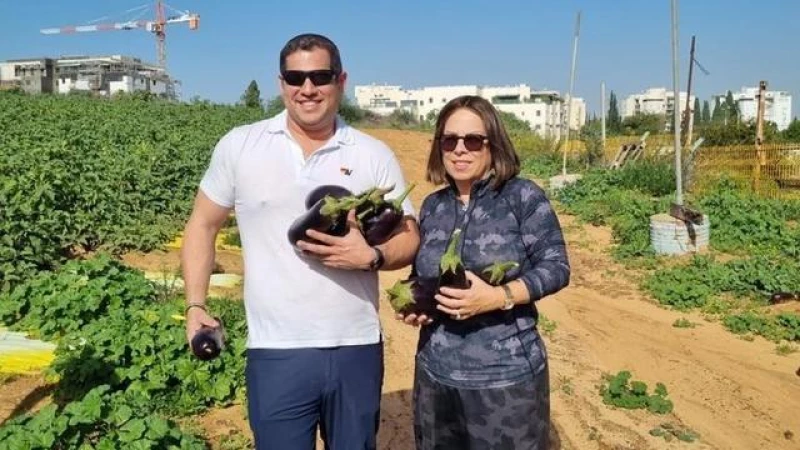Judy Heller never imagined that she would ever pick a pomegranate, but in mid-November, she found herself doing just that on a farm in Israel. Her motivation was to support the country after the October 7 Hamas attacks, she explained.
The 37-year-old single mother from New York felt compelled to take action when she learned that 1,200 people had been killed in Israel and over 240 people were reportedly taken hostage in Gaza. She couldn't simply "sit and watch" the war unfold from home, so she made arrangements for her 13-year-old son to be cared for by family and friends, organized her work schedule, and boarded a plane.
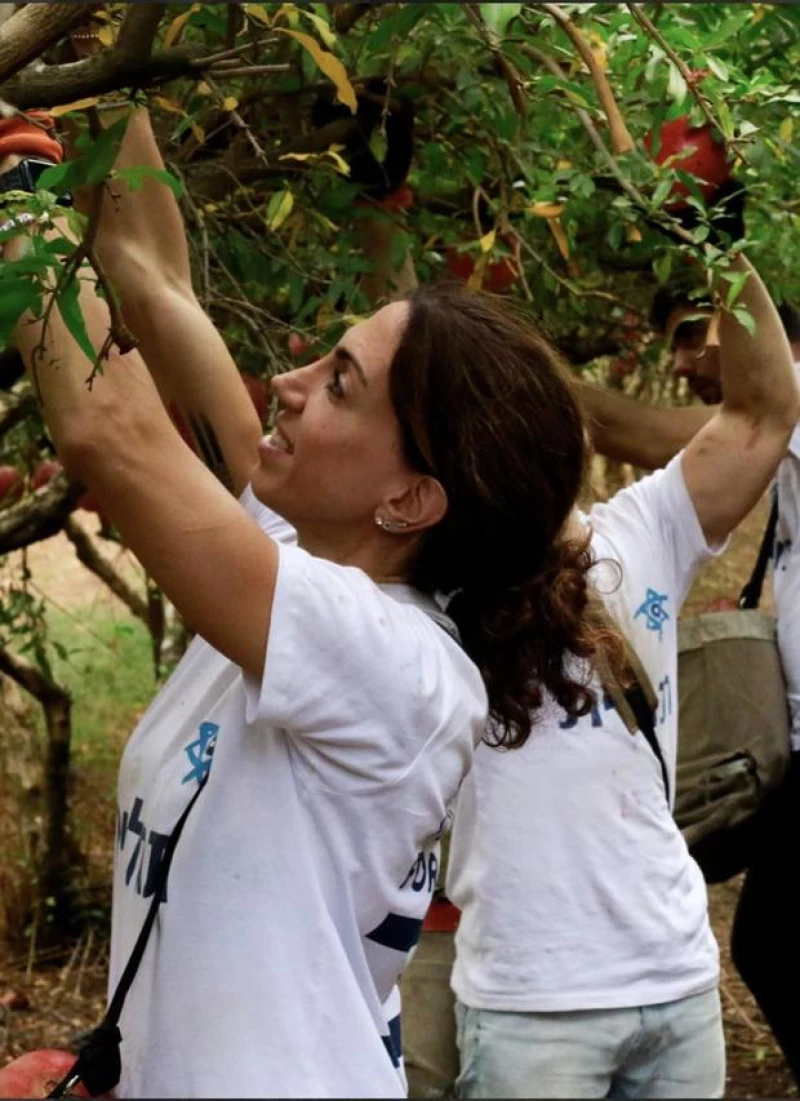
Deborah Chames Cohen received a call from her son Jonathan, who resides in Miami, while she was at home in Toronto.
"Mom, I really want to go to Israel. They need our help," Cohen, a 66-year-old divorce lawyer, recalled her son saying. Cohen had been visiting family and friends in Israel during the October 7 attacks and had been closely following the events from a distance since returning home.
But as soon as her 39-year-old son told her he wanted to return to Israel, she knew she had to go with him. She flew to Miami, and on Nov. 20, the pair flew to Israel to pick eggplants and green and red peppers.
Ian Lobell, a therapist in Los Angeles, felt he had to help Israel. For three weeks after the attacks he said he was in shock and "heartbroken," but then he decided to fly to Israel to volunteer. He organized time off work, landed in the country in mid-November, and just started picking vegetables and flowers.
"I was doing things I would have never thought to do — to help people whose farms and industries were suffering," said Lobell.
"The Greatest Crisis"
These volunteers joined hundreds of others from outside Israel — and within — to harvest fruit and vegetables from Israel's farms before the produce rots on the ground. While the strength of Israel's economy lies mostly within its high-tech and diamond industries, agriculture still plays an important role in the country's emotional heart. Part of the country was built on the idea of shared land cultivation and keeping farms healthy, and harvesting is central to its ideals. But with deepening labor shortages due to the war, Israel is figuring out how to keep the industry running.
Israel has blocked Palestinian farm workers from entering since the war began. Between 10,000 and 20,000 Palestinian farm workers from the West Bank are not allowed to enter the country as tensions in that area rise, following the decision made by the Israeli government. Reports of settlers attacking Palestinian farmers as the casualties in the Israel-Hamas war climb have led to a rare rebuke from the United States, which announced travel bans on extremists.
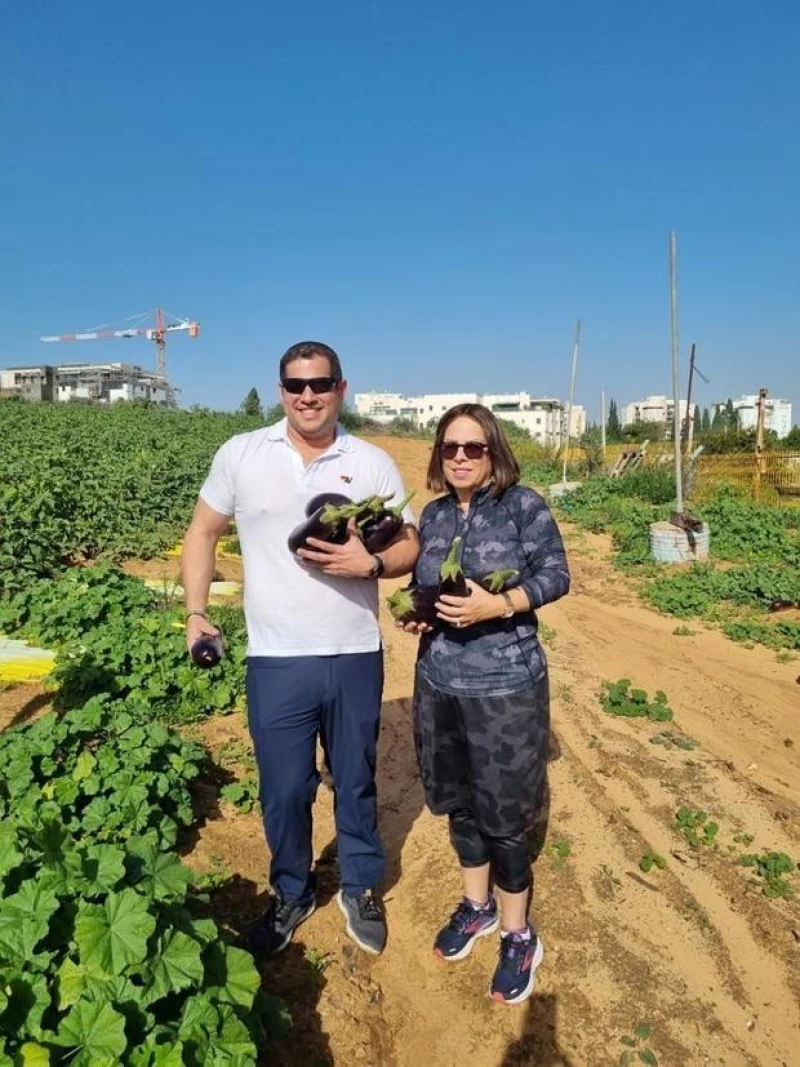
Another labor gap appeared when foreign workers left the country. There were 30,000 foreign workers in Israel before Oct. 7. About 10,000 have left so far, according to a spokesperson from Israel's Ministry of Agriculture and Rural Development, creating a crisis for the agricultural sector.
"Israeli agriculture is in the greatest crisis since the establishment of the state. The main shortage is in working hands that can help Israeli agriculture," Yuval Lipkin, the deputy director general of the Ministry of Agriculture, told CBS News in an email. "Israeli agriculture is a major pillar in the food security of the State of Israel, and hence our role during this period is to ensure fresh, healthy food for all Israeli citizens without external dependence."
Organizations such as Birthright, a not-for-profit dedicated to bringing young Jewish people to Israel, and the Jewish National Fund, which purchases and develops land in Israel, have been organizing volunteer harvest trips. Heller, who traveled on a Birthright trip, was one of the 3,300 alumni who applied to go, the organization said. One thousand volunteers will travel to Israel in December, Birthright said.
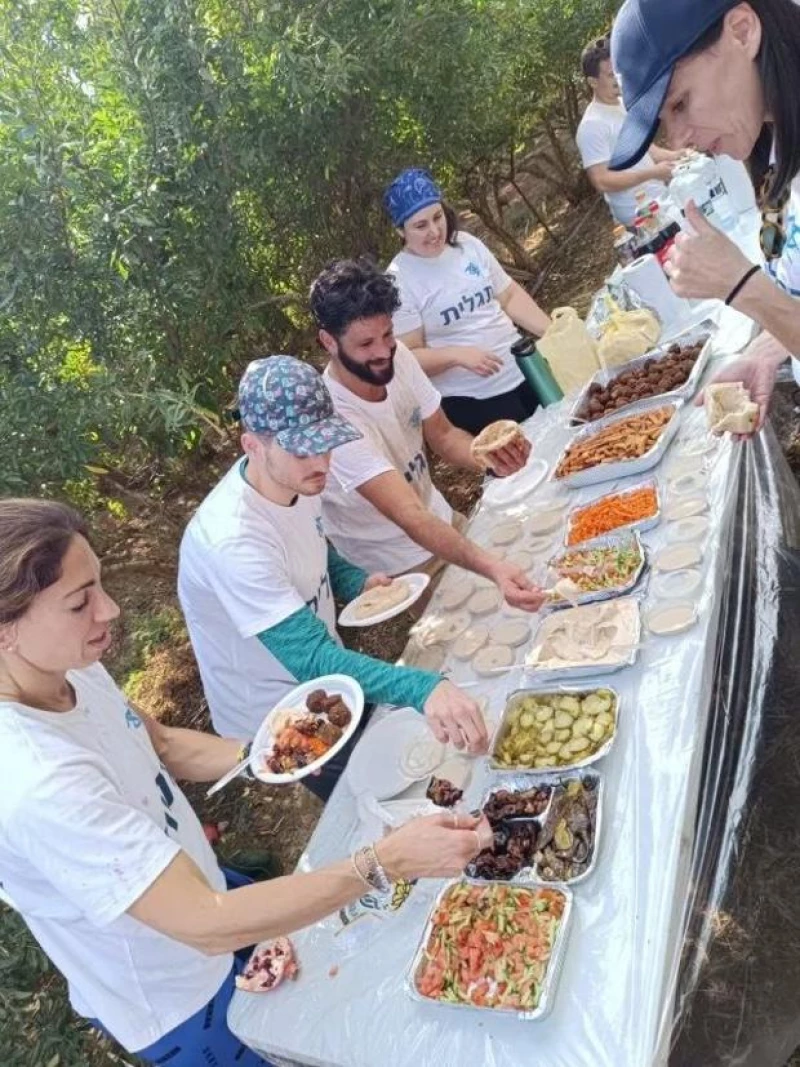
Informal groups on social media and personal connections are being used by individuals like Cohen and Lobell to find farms in need of harvest assistance.
A private Facebook group with over 3,000 members is actively sharing information about farms across the country that require help. Daily posts include requests for assistance in picking strawberries, tomatoes, and pineapples.
"We are currently at the peak of the season," one farmer shared on social media. They mentioned that their farm only has three foreign workers remaining and they are seeking eight to ten additional workers to aid in fruit picking in the desert.
Israelis, volunteers from various countries, and even refugees have been answering the call for assistance. Adam Ahmed Yahya, a Sudanese asylum seeker, organized a group of African students residing in Israel to volunteer and "show their support," according to him.
"Weighing war versus wages"
While volunteers are crucial and bring hope, they cannot offer a long-term solution to Israel's farm labor shortage. In an attempt to recruit Israelis, the Ministry of Agriculture and Rural Development of Israel offered to pay new workers $780 per month for two months, and $1,000 during the third month. These wages would be provided in addition to the farmer's payment, as stated by the government.
Israel has sought assistance from various countries in recruiting farm workers. According to a spokesperson from the ministry of agriculture, the government has given approval for the entry of 5,000 foreign workers in agriculture through a new channel.
A private bureau, authorized to facilitate the employment of foreign workers in the agriculture sector, will be responsible for recruiting these workers. As of now, approximately 650 foreign workers have already arrived in Israel under this program.
However, there has been some reluctance from countries to send workers to Israel due to concerns that foreigners may be at risk, as some were among the hostages held by Hamas and others who lost their lives in the attack on October 7.
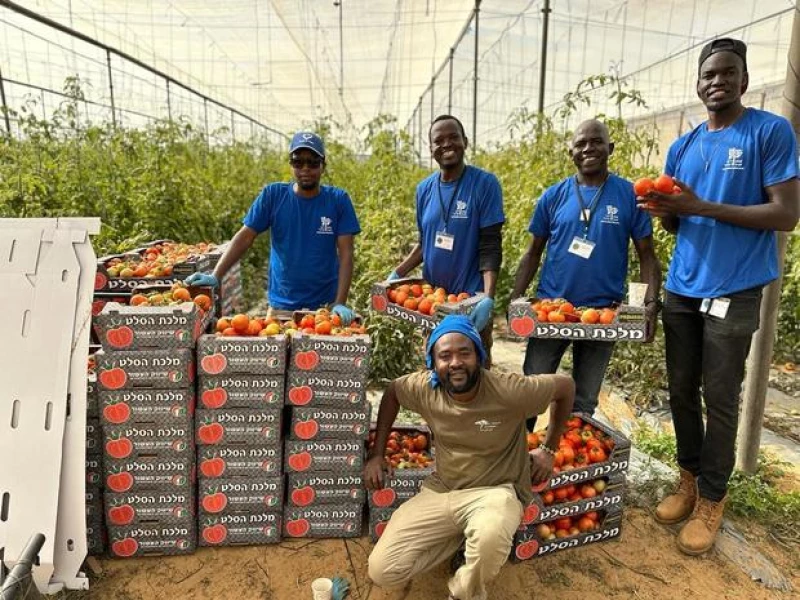
According to the Associated Press, Thailand has reported that 23 Thai nationals, primarily agricultural workers, were allegedly abducted by Hamas. It is believed that there may be more individuals missing, and unfortunately, 32 deaths have been reported. A few foreign nationals were released during the temporary seven-day cease-fire between Israel and Hamas.
Despite the risks, some countries have responded to the call for workers, enticed by the higher wages and challenging employment conditions in their home countries. The BBC has reported that Malawi has sent around 220 young individuals to work on Israeli farms, leading to criticism of the African nation's government due to the backlash it has faced.
The Israeli government has announced that workers will receive a monthly salary of $1,500 and will have the same rights and protections as Israeli workers.

